|
|
|
Editor's note
|
|
Before the arrival of the internet, most journalism was produced in pretty well-off advertising businesses. The proximity of money and public interest journalism was often a source of tension, but rarely rupture. Every now and then you’d read something about the public’s right to know and sardonic journos would moan that “serving the public interest” really meant filling spaces between ads.
Advertising doesn’t pay any more – or more accurately it pays the likes of Google, Facebook and almost no one else. Space for “content” online is endless, but so is the torrent of misinformation. Cleaved from the funding it needs to survive, journalism has been freed to rethink what serving the public interest actually means.
At The Conversation we have given this a lot of thought, in part because we do journalism so differently. We only work with academic experts. We prize accuracy and trust above all else. We aim to serve our readers by giving them quality information with no other agenda than helping them be better informed.
This doesn’t always involve reporting on a high-profile court case or investigating corruption, as vital as that work is. Good information about nutrition is vital to deciding what to buy at the supermarket. Good information about how COVID-19 spreads is vital so people know how to protect themselves and each other. We know the damage that can be done when bad information spreads about a topic as important as vaccination.
So here’s my definition of public interest journalism: providing reliable and accurate information to those who need it most. At The Conversation it could be an article modelling the economic impact of the COVID-19 pandemic, or the latest research on endometriosis. At the Sydney Morning Herald it might be a political column or an investigation of public corruption.
Because we see serving the public interest as being the core of what we do, we make sure everything we publish is free. In fact, we give our work away to other media outlets. We want to support a healthy media ecosystem and ensure expert research and analysis gets the biggest possible audience.
We think this is the right approach, but it does have one drawback: it makes it harder to fund our work. This is why each year we turn to readers and ask those of you who value our work to make a contribution.
If you can donate, please do so, and thank you to all the wonderful and public-spirited readers who have already donated.
And to the dozens of people who got in touch in recent days to say they love reading The Conversation but aren’t able to donate – no worries and you’re welcome. It’s great you value our work, especially now we’re finally out of the business of filling spaces between the ads.
|
Misha Ketchell
Editor & Executive Director
|

|
|
Top stories
|
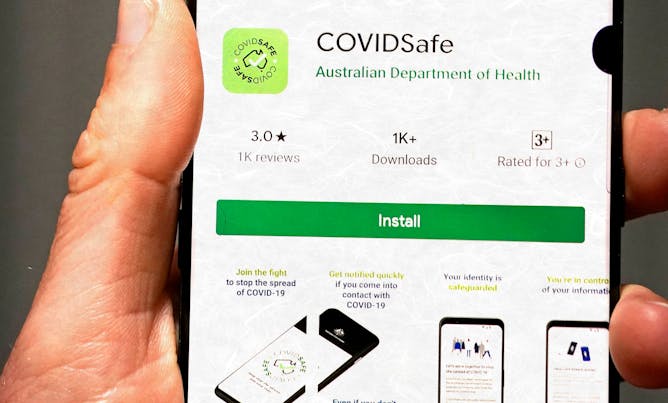
SCOTT BARBOUR/AAP
Robert Slonim, University of Sydney
People in Adelaide, Alice Springs, Brisbane, Cairns, and other places deserve access to information the government already has that could help them make better choices.
|
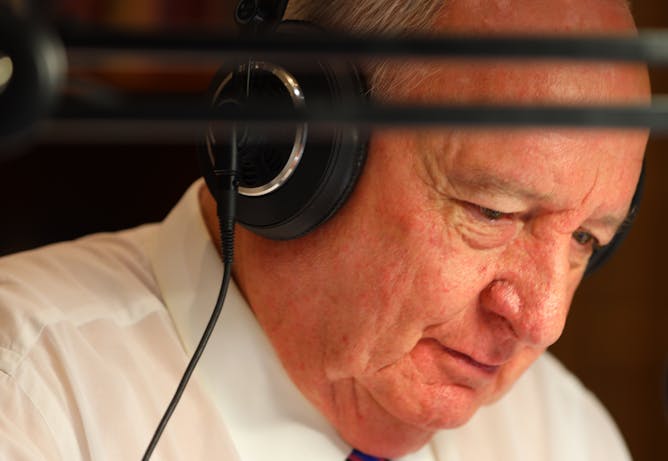
AAP/Kris Durston
Denis Muller, University of Melbourne
With his defence of those on "struggle street" mixed with a hectoring and bullying style, Jones exerted enormous influence on Australian public life. But utlimately, progress ran over the top.
|
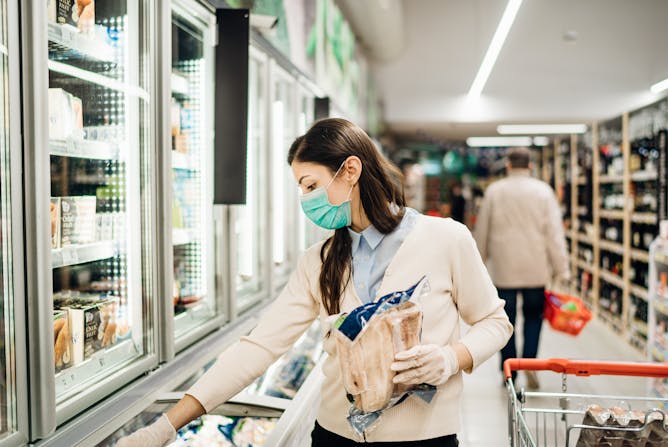
Shutterstock
Maximilian de Courten, Victoria University; Barbora de Courten, Monash University; Vasso Apostolopoulos, Victoria University
The evidence on whether wearing masks and gloves in the community will actually protect against coronavirus isn't strong. But if you're going to take these precautions, you might as well do it right.
|
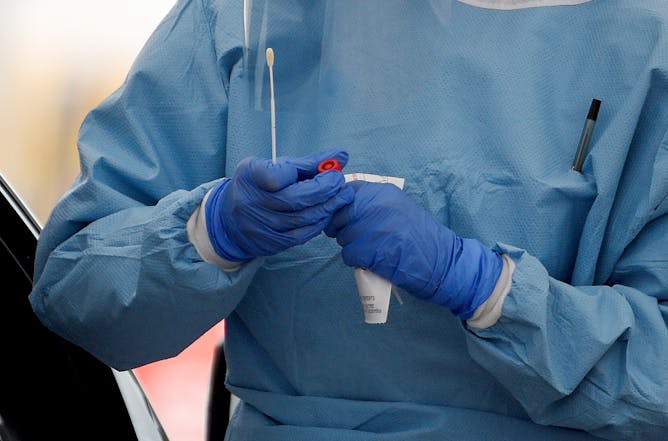
Bianca de Marchi/AAP Image
C Raina MacIntyre, UNSW
Test, trace, maintain social distance, and keep travel bans and quarantines in place. These measures will help Australia keep the coronavirus in check as we gradually emerge from lockdown hibernation.
|
Health + Medicine
|
-
Erica Millar, La Trobe University
Abortions are expensive and, for many women, difficult to access. These challenges are only heightened during the coronavirus pandemic.
|
|
Cities
|
-
Elek Pafka, University of Melbourne
The internal density and layout of buildings are key factors in COVID-19 transmission risk. This is not an argument against high-density cities, some of which have successfully contained the virus.
-
David Sanderson, UNSW
Many are speculating about the pandemic changing how we plan and use our cities. What they overlook is how many people live in unplanned settlements where it's more likely to be business as usual.
|
|
Science + Technology
|
-
Baerbel Koribalski, CSIRO
Like a cosmic butterfly in the sky, radio galaxy PKS 2014-55 was observed by CSIRO researchers with the Australian SKA Pathfinder telescope.
-
Seth Lazar, Australian National University; Meru Sheel, Australian National University
A proposed fix to help the COVIDSafe app work on Apple phones may come with costs to public health and accountability.
|
|
Environment + Energy
|
-
James Renwick, Te Herenga Waka — Victoria University of Wellington
Earth's has gone through major climate changes in the past. They happened on time scales of millions of years and triggered mass extinctions. Our emissions are changing the climate much faster.
-
Grace Russell, Southern Cross University; Daniele Cagnazzi, Southern Cross University
Some species, including blue whales, spend little time at the surface. So despite their overwhelming size, they can be hard to find and tough to study.
-
Jamie Pittock, Australian National University; Bruce Thom, University of Sydney; Celine Steinfeld; Eytan Rocheta, UCLA School of Medicine; Nicholas Harvey, University of Adelaide
The review examined hundreds of studies and concluded the lower Murray should remain a freshwater ecosystem, or severe environmental and economic damage will result.
|
|
Politics + Society
|
-
Michelle Grattan, University of Canberra
Michelle Grattan speaks with Deputy Chief Medical Officer Paul Kelly about the second-wave of coronavirus
-
Michelle Grattan, University of Canberra
Josh Frydenberg is in isolation following a coughing fit in the House of Representatives.
-
Andrew Podger, Australian National University
Public servants are supposed to be apolitical. But there is a difficult line to walk between their freedom of speech as citizens and impartiality as government officials.
|
|
Arts + Culture
|
-
Susan Carson, Queensland University of Technology
Famous expats Charmian Clift and George Johnson, Leonard Cohen and Marianne Ihlen provide inspiration for this heady romance. But the shifts between reality and fiction are distracting at times.
|
|
Business + Economy
|
-
Norman Gemmell, Te Herenga Waka — Victoria University of Wellington
New Zealand's 2020 "pandemic budget" should shift spending priorities towards a flexible and targeted approach to economic recovery.
|
|
Education
|
-
Frank Larkins, University of Melbourne; Kylie Walker, Australian National University
Australia’s research workforce will be severely impacted by the pandemic, with the effects likely to be felt for years, if not decades.
|
|
| |
Featured jobs
|

|
— Canberra ACT, Australia
|
|
|
|
| |
| |
| |
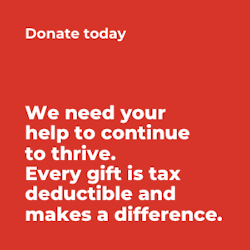
|
| |
| |
| |
Featured Events & Courses
|

|
Level 21, 15 Broadway, Ultimo, New South Wales, 2007, Australia — University of Technology Sydney
|

|
Online Live Stream, Clayton, Victoria, 3800, Australia — Monash University
|

|
Online Webinar, Hobart, Tasmania, 7000, Australia — University of Tasmania
|

|
Melbourne (Venue TBC), Melbourne, Victoria, 3000, Australia — Australia New Zealand School of Government
|
|
|
|
| |
| |
| |
| |
| |
|
|
|
|
|
|
|